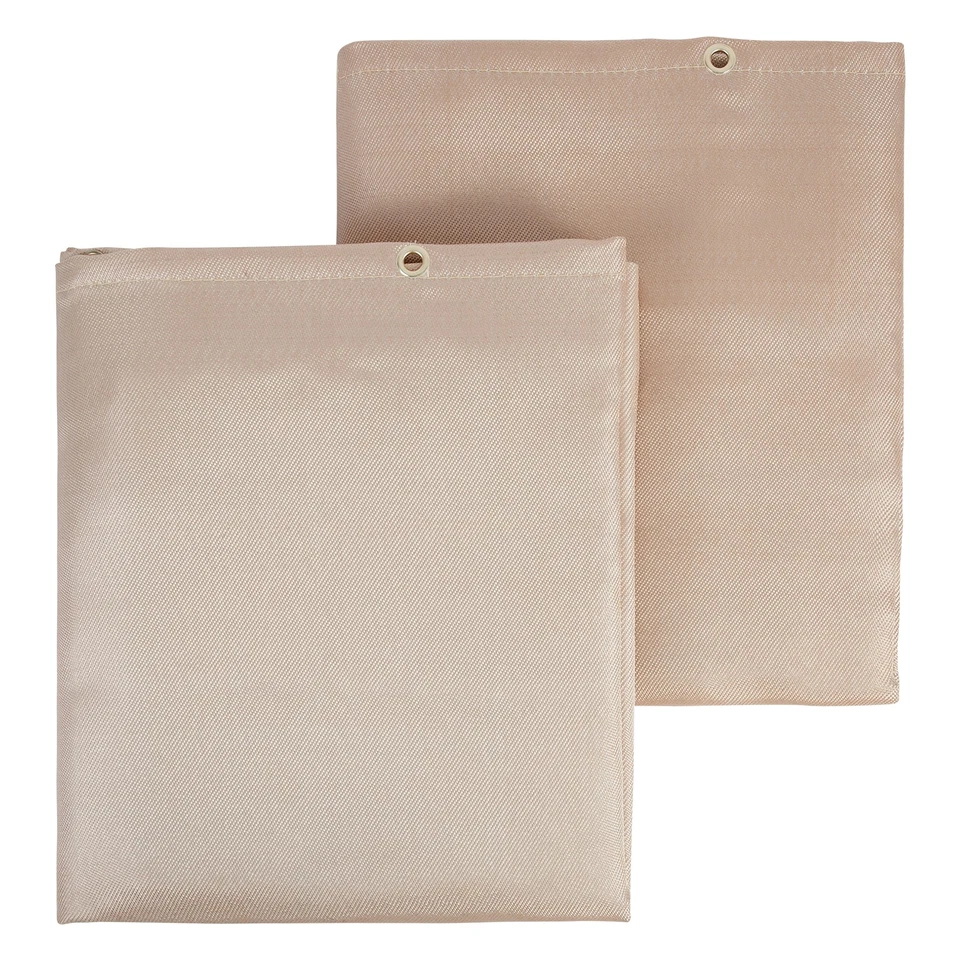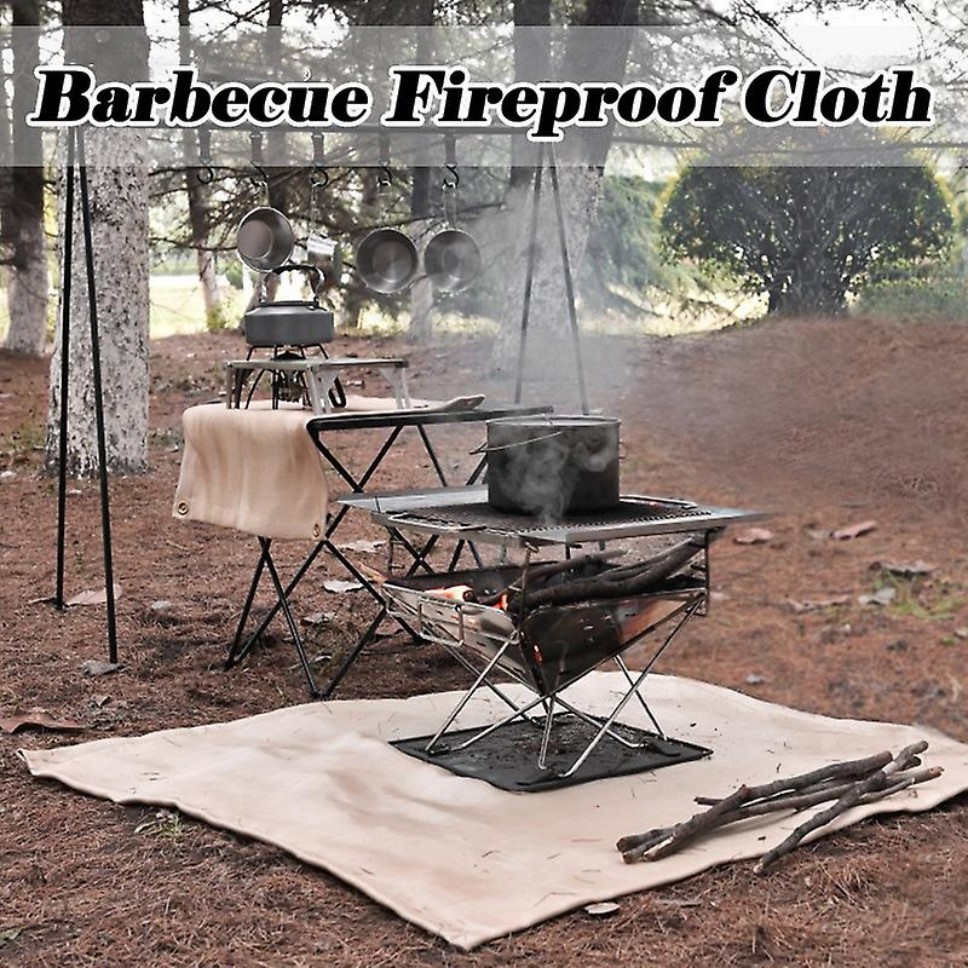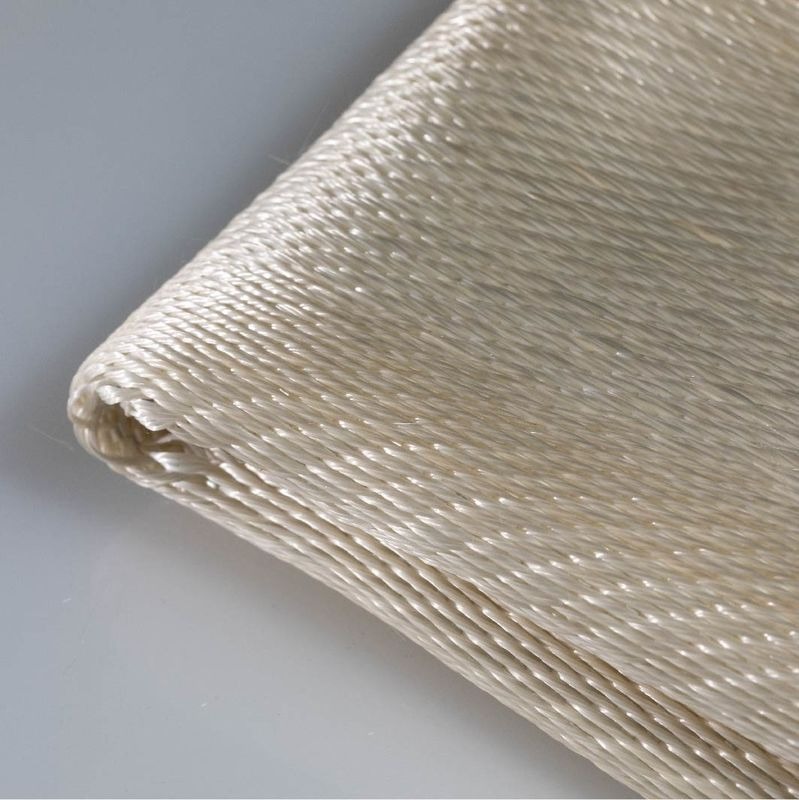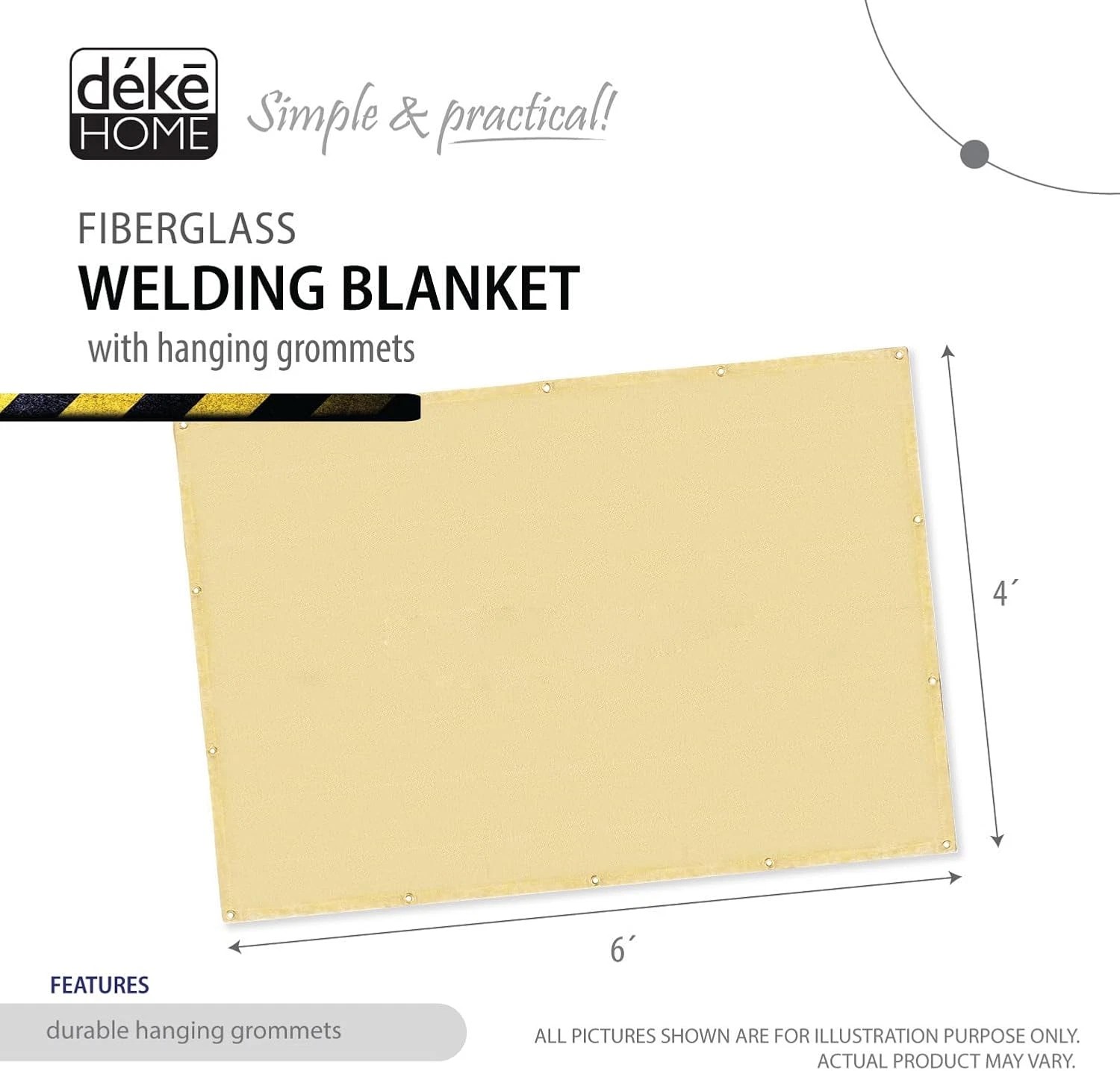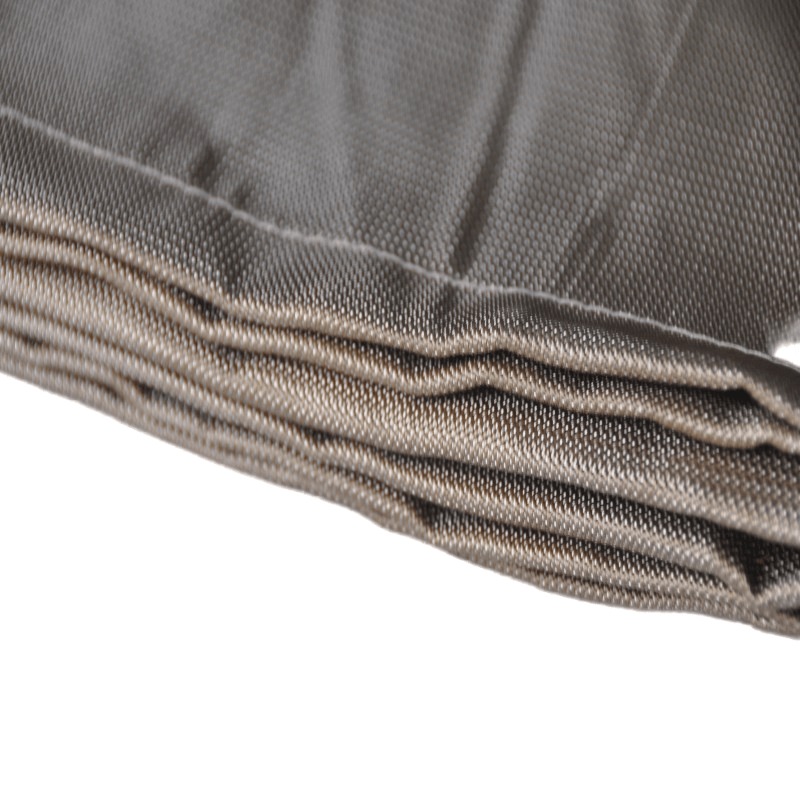Fire Reaction Blanket: Your Essential Guide to Fire Safety and Protection
A fire reaction blanket is a crucial safety tool that smothers small fires by cutting off oxygen supply. This guide explains how it works, its advantages over extinguishers, proper usage techniques, and maintenance tips for optimal fire protection in various settings.
What Is a Fire Reaction Blanket?
A fire reaction blanket is a safety device made from flame-resistant materials designed to extinguish small fires. Unlike fire extinguishers that use chemicals, it works by smothering flames, cutting off their oxygen supply. These blankets are typically made from fiberglass or wool treated with fire-retardant chemicals.
You'll find fire reaction blankets in various sizes, but most measure about 1m × 1m (3.3ft × 3.3ft) - large enough to cover a person or small fire. They're lightweight (usually under 1kg/2.2lbs) and often come in easy-to-open pouches for quick access during emergencies.
How Does a Fire Reaction Blanket Work?
The science behind fire reaction blankets is simple but effective. Fire needs three elements to burn: heat, fuel, and oxygen. By placing the blanket over flames, you:
- Block oxygen from reaching the fire
- Contain heat within the blanket
- Prevent the fire from spreading
This method works particularly well on Class F fires (cooking oils and fats) and Class A fires (wood, paper, textiles). The blanket's material doesn't conduct heat well, protecting your hands as you smother the flames.
Pro Tip:Always place the blanket gently over the fire rather than throwing it, which could fan the flames or miss the target.
When to Use a Fire Reaction Blanket
Fire reaction blankets are ideal for specific situations where extinguishers might be less effective or dangerous:
- Kitchen fires:Especially grease fires where water would spread flames
- Clothing fires:When someone's clothes catch fire
- Small contained fires:On countertops, in trash bins, or small appliances
- As emergency protection:To wrap around yourself when escaping through flames
They're not suitable for large fires, electrical fires (unless specifically rated for them), or chemical fires. In these cases, evacuate immediately and call emergency services.
Advantages Over Fire Extinguishers
While fire extinguishers are essential, fire reaction blankets offer unique benefits:
- No maintenance:Unlike extinguishers that need regular checks, blankets require minimal upkeep
- No residue:Leaves no messy chemicals after use
- Reusable:Can often be used multiple times if undamaged
- Easy to use:No special training required
- Safe for grease fires:Unlike water or some extinguishers that can worsen oil fires
For complete protection, experts recommend having both a blanket and extinguisher in high-risk areas like kitchens.
How to Use a Fire Reaction Blanket Properly
Follow these steps for effective fire suppression:
- Pull the blanket quickly from its container by the tabs
- Hold the blanket with your hands protected behind it
- Approach the fire carefully from upwind if possible
- Gently place (don't throw) the blanket over the flames
- Leave the blanket in place for at least 15 minutes to ensure the fire is out
- Don't peek - lifting the blanket could reignite the fire
If the fire doesn't extinguish immediately or grows, evacuate and call emergency services. Never risk your safety trying to fight a spreading fire.
Choosing the Right Fire Reaction Blanket
Not all fire blankets are equal. Look for these features when purchasing:
- Certification:Meets standards like EN 1869 (Europe) or AS/NZS 3504 (Australia/NZ)
- Size:At least 1m × 1m for effective coverage
- Material:Fiberglass or wool with fire-retardant treatment
- Easy-release packaging:Quick access in emergencies
- Wall mounting:Comes with brackets for secure, visible placement
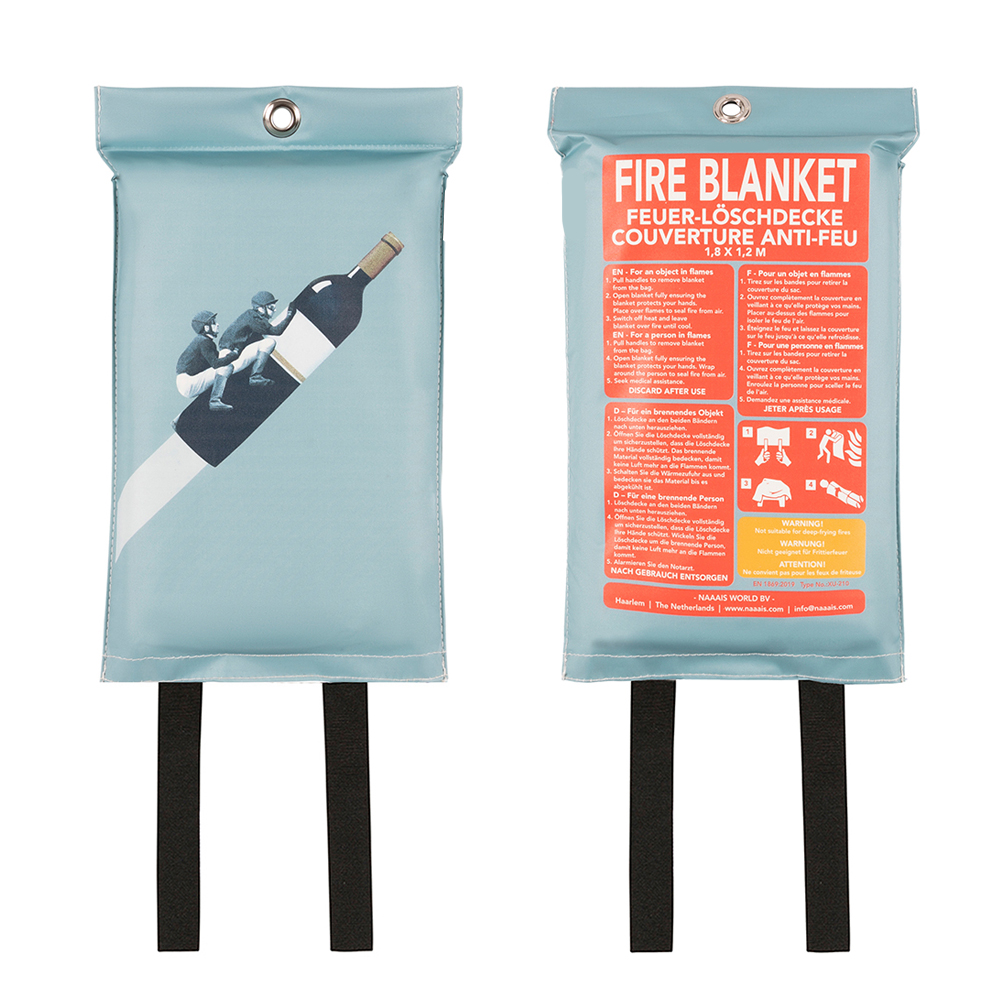
For commercial kitchens, consider larger blankets (1.2m × 1.2m or more) and those specifically rated for high-temperature grease fires.
Maintenance and Storage
Proper care ensures your fire reaction blanket works when needed:
- Store in its original container in an easily accessible location
- Mount on walls near fire risks (like stoves) but not too close to heat sources
- Check periodically for damage, tears, or discoloration
- Replace if the blanket shows signs of wear or after use in a real fire
- Keep the release mechanism free from obstructions
Unlike extinguishers, fire blankets don't require professional servicing, making them low-maintenance safety tools.
Common Mistakes to Avoid
Even with simple devices, errors can reduce effectiveness:
- Storing incorrectly:Placing it in a drawer or hard-to-reach spot
- Using on large fires:Blankets are for small, contained fires only
- Removing too soon:Not waiting long enough for complete extinguishment
- Improper placement:Not fully covering the fire source
- Using damaged blankets:Compromised materials may fail when needed
Safety First:Always prioritize evacuation over firefighting. If in doubt, get out and call professionals.
Where to Install Fire Reaction Blankets
Strategic placement maximizes their effectiveness:
- Kitchens:Within 2m (6.5ft) of cooking areas but not directly above stove
- Workshops:Near areas with flammable materials or heat sources
- Garages:Close to workbenches or vehicle repair areas
- Offices:Near kitchenettes or server rooms
- Boats/RVs:In compact living spaces with cooking facilities
Ensure all household members know the blanket's location and how to use it. Consider practicing with an unlit "fire" to build confidence.
Fire Reaction Blanket vs. Other Fire Safety Tools
Understanding how blankets compare helps create a complete fire safety plan:
| Tool | Best For | Limitations |
|---|---|---|
| Fire Reaction Blanket | Small contained fires, grease fires, clothing fires | Not for large or spreading fires |
| Fire Extinguisher | Larger fires, various fire classes | Requires training, leaves residue |
| Smoke Alarm | Early fire detection | Doesn't extinguish fires |
| Fire Sprinkler | Automatic fire suppression | Requires professional installation |
A comprehensive approach combines early detection (smoke alarms), initial response (blankets/extinguishers), and professional systems (sprinklers) where appropriate.
Final Thoughts on Fire Reaction Blankets
Every home and workplace should have at least one fire reaction blanket, especially in areas prone to small fires like kitchens. Their simplicity, effectiveness against common fire types, and low maintenance make them invaluable safety tools.
Remember that while fire reaction blankets are excellent for small emergencies, they're just one part of fire safety. Combine them with smoke detectors, escape plans, and proper fire extinguishers for complete protection. Stay safe by being prepared - your fire reaction blanket could one day prevent a small incident from becoming a major disaster.


